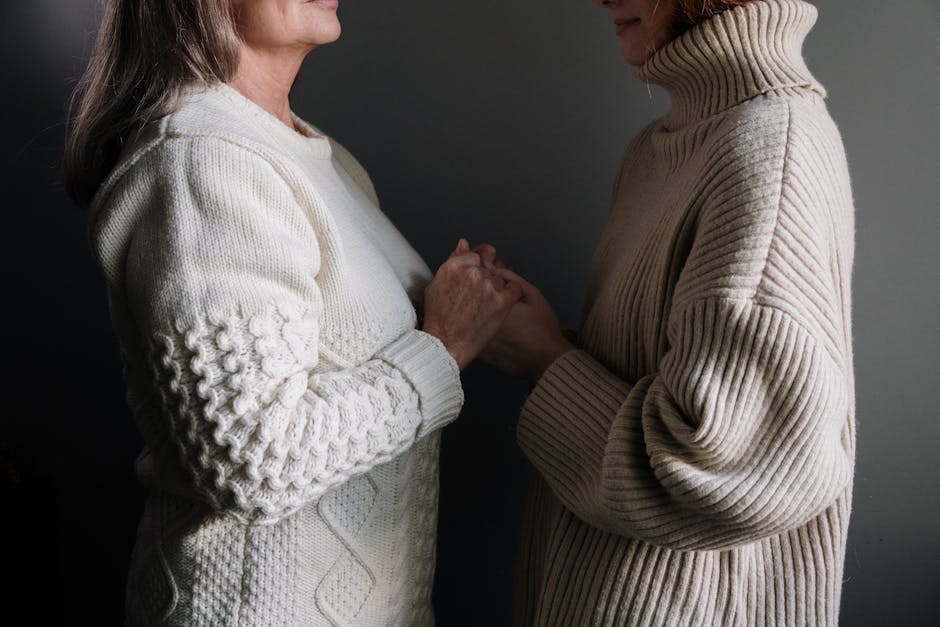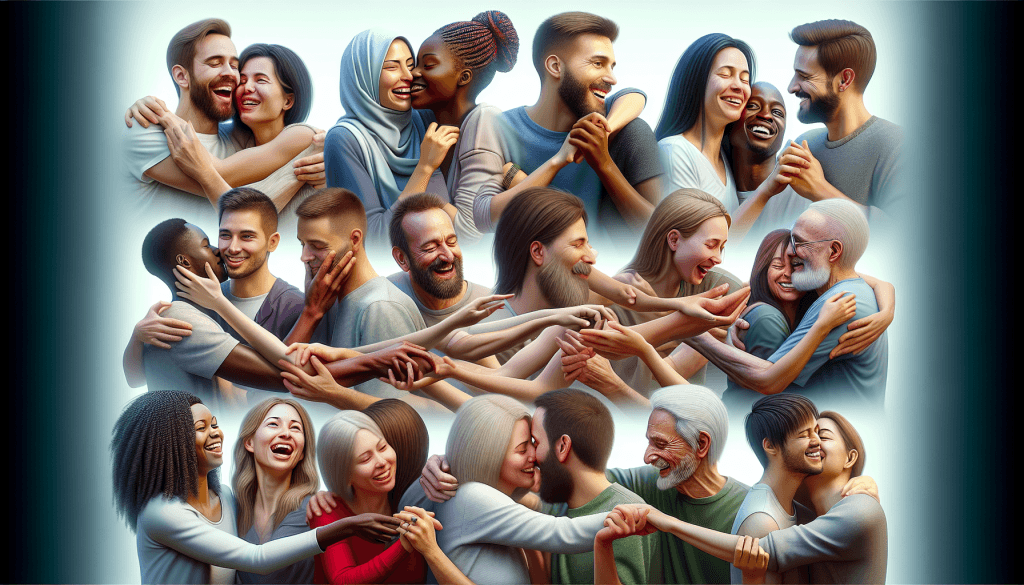Introduction to Gratitude in Relationships
Gratitude is like the secret ingredient in a recipe for happiness—it’s often overlooked but makes all the difference.
In relationships, expressing gratitude can transform ordinary moments into extraordinary ones, fostering deeper connections and emotional satisfaction.
But why is gratitude so powerful, and how does it influence relationship happiness? Stick around to uncover the science, benefits, and practical ways to cultivate gratitude in your relationships.
Key Takeaways
- Gratitude strengthens emotional bonds and builds trust in relationships.
- It reduces stress and improves mental well-being for both partners.
- Regular expressions of appreciation can enhance communication and resolve conflicts.
- Mindfulness and empathy amplify the effects of gratitude over time.
Introduction to Gratitude in Relationships
Definition of Gratitude and Its Significance
Gratitude is the act of recognizing and appreciating the good things in life, whether big or small.
It’s more than just saying “thank you”; it’s about genuinely valuing the people and experiences that bring joy and meaning.
In relationships, gratitude acts as a glue, holding partners together through thick and thin.
Overview of Gratitude’s Impact on Emotional Well-Being
When you feel grateful, your brain releases feel-good chemicals like dopamine and serotonin.
This emotional boost doesn’t just make you happier—it also makes you more resilient to stress and negativity.
In relationships, this means fewer arguments and more moments of joy.
Connection Between Gratitude and Relationship Happiness
Think of gratitude as a mirror—it reflects positivity back to the giver and receiver.
When partners express appreciation, it creates a cycle of kindness and mutual respect.
This cycle strengthens the emotional foundation of the relationship, leading to long-term happiness.

Psychological Benefits of Gratitude in Relationships
Enhancing Emotional Bonds Through Appreciation
Imagine your partner surprises you with your favorite coffee on a busy morning.
A simple “thank you” can make them feel valued and deepen your connection.
Gratitude fosters emotional intimacy, making both partners feel seen and cherished.
Positive Effects on Mental Health and Stress Reduction
Gratitude acts like a stress-relief valve.
Acknowledging your partner’s efforts reduces tension and promotes a sense of calm.
This emotional balance is crucial for maintaining a healthy relationship.
Strengthening Trust and Mutual Respect
When gratitude becomes a habit, it builds trust.
Partners who feel appreciated are more likely to reciprocate, creating a foundation of mutual respect.
This trust acts as a safety net during challenging times.

Research on Gratitude and Relationship Dynamics
Studies Highlighting Gratitude’s Role in Relationship Satisfaction
Research from the Greater Good Science Center shows that couples who express gratitude regularly report higher levels of satisfaction.
Gratitude encourages positive behaviors, which, in turn, strengthen the relationship.
Evidence of Improved Communication and Conflict Resolution
Gratitude can act as a buffer during conflicts.
When partners feel appreciated, they’re more likely to approach disagreements with empathy and patience.
This leads to healthier communication and quicker resolutions.
Long-Term Benefits of Gratitude in Romantic Partnerships
Over time, gratitude becomes the bedrock of a thriving relationship.
It helps couples navigate life’s ups and downs with grace and understanding.
For more insights on how gratitude impacts emotional well-being, check out this guide from Harvard Health.

Cultivating Gratitude in Relationships
Expressing Appreciation Regularly
Verbal Affirmations and Written Notes
A heartfelt “I appreciate you” or a surprise love note can brighten your partner’s day.
These small gestures show that you don’t take them for granted.
Acts of Kindness and Thoughtful Gestures
Cooking their favorite meal or helping with chores are practical ways to express gratitude.
Actions often speak louder than words.
Recognizing and Valuing Partner Contributions
Take a moment to notice the little things your partner does, like folding the laundry or fixing a leaky faucet.
Acknowledging these efforts reinforces their importance in your life.
Building a Habit of Gratitude Through Daily Practices
Consider keeping a gratitude journal to reflect on the positive aspects of your relationship.
For tips on starting this practice, explore this article.

Emotional Intelligence and Gratitude
Understanding Emotions to Foster Gratitude
Emotional intelligence helps you recognize and appreciate your partner’s feelings.
This understanding strengthens your ability to express gratitude authentically.
Empathy’s Role in Appreciating a Partner’s Efforts
Empathy allows you to see the world through your partner’s eyes.
This perspective makes their efforts more meaningful, deepening your appreciation.
Developing Self-Awareness to Nurture Gratitude
Self-awareness helps you identify moments where gratitude is needed.
It also encourages you to express it in ways that resonate with your partner.

Mindfulness and Gratitude in Long-Term Relationships
Practicing Mindfulness to Stay Present and Appreciative
Mindfulness keeps you focused on the present, making it easier to notice and appreciate your partner’s contributions.
This practice can be especially helpful during stressful times.
Maintaining Gratitude Through Life Transitions, Such as Parenthood
Life changes, like becoming parents, can strain relationships.
Mindful gratitude helps couples stay connected and supportive during these transitions.
For more on this topic, read this article.
Strengthening Connections Over Time With Mindful Gratitude
Over the years, gratitude acts as a thread, weaving together shared experiences and memories.
This strengthens the bond between partners, making the relationship more fulfilling.

Challenges in Practicing Gratitude
Overcoming Negativity and Resentment
It’s easy to focus on what’s wrong instead of what’s right.
Shifting your mindset to gratitude can help dissolve resentment and foster positivity.
Addressing Imbalances in Gratitude Expression
If one partner feels unappreciated, it can create tension.
Open communication is key to addressing these imbalances and restoring harmony.
Strategies to Rebuild Gratitude in Strained Relationships
Rebuilding gratitude takes time and effort.
Start small by acknowledging one positive thing about your partner each day.
For more tips, explore this guide.
Conclusion
Recap of Gratitude’s Role in Relationship Happiness
Gratitude is the cornerstone of a happy, healthy relationship.
It strengthens emotional bonds, reduces stress, and fosters mutual respect.
Encouragement to Prioritize Gratitude in Daily Interactions
Make gratitude a daily habit.
Whether through words, actions, or mindfulness, small acts of appreciation can have a big impact.
Final Thoughts on Fostering Lasting Relationship Satisfaction Through Gratitude
In the end, gratitude is like a garden—it flourishes with care and attention.
By prioritizing gratitude, you can cultivate a relationship that’s not just happy but deeply fulfilling.
For more on building gratitude into your life, check out this article.

Gratitude and Relationship Happiness: Your Go-To FAQ for Building Stronger Bonds
What is the connection between gratitude and relationship happiness?
Gratitude fosters a positive emotional environment in relationships by encouraging appreciation and mutual respect. When partners express gratitude, it strengthens emotional bonds and promotes a sense of belonging, leading to greater happiness and satisfaction in the relationship.
How does expressing gratitude affect communication in a relationship?
Expressing gratitude improves communication by creating a safe and positive space for dialogue. It reduces misunderstandings, fosters empathy, and encourages more open and honest conversations, which are essential for a healthy relationship.
Can practicing gratitude help resolve conflicts in relationships?
Yes, practicing gratitude can help resolve conflicts by shifting focus from negative emotions to positive aspects of the relationship. Acknowledging your partner’s efforts and expressing appreciation can de-escalate tension and pave the way for constructive problem-solving.
What are some simple ways to show gratitude in a relationship?
Simple ways to show gratitude include saying ‘thank you’ often, leaving thoughtful notes, complimenting your partner, or performing small acts of kindness. These gestures, though small, can have a big impact on strengthening your bond.
Does gratitude have long-term benefits for relationships?
Absolutely! Gratitude nurtures trust, emotional intimacy, and mutual respect over time. Couples who regularly practice gratitude tend to have more resilient relationships and are better equipped to handle challenges together.
How can gratitude improve emotional intimacy between partners?
Gratitude enhances emotional intimacy by making partners feel valued and understood. When you appreciate your partner’s efforts and express it, it fosters a deeper emotional connection and a sense of security within the relationship.
Can gratitude help in recovering from a rough patch in a relationship?
Yes, gratitude can play a crucial role in healing after a rough patch. By focusing on the positive aspects of your partner and the relationship, you can rebuild trust and rekindle emotional closeness, even after difficult times.
Is gratitude equally important in all types of relationships?
While the dynamics may vary, gratitude is important in all types of relationships, whether romantic, familial, or platonic. It fosters mutual respect, strengthens bonds, and creates a positive atmosphere in any relationship.
How can couples incorporate gratitude into their daily lives?
Couples can incorporate gratitude by establishing daily rituals, such as sharing one thing they appreciate about each other before bed or keeping a joint gratitude journal. These practices help reinforce positive feelings and strengthen the relationship.
What are the psychological benefits of gratitude in relationships?
Gratitude promotes psychological well-being by reducing stress, increasing happiness, and fostering a sense of fulfillment. In relationships, it enhances emotional resilience and creates a supportive environment for both partners.



